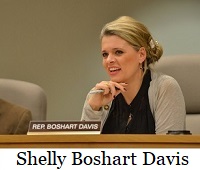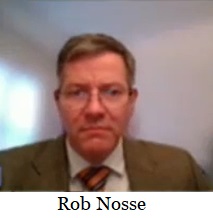More time is needed to see results
Representative Rob Nosse (D-Portland) appears to be out of touch with rural Oregon and how much the valley needs rural Oregon for the state to function. He has sponsored
HB 3158, which would impose a laundry list of taxes that would make farming or owning or operating any heavy equipment in Oregon more expensive.
Representative Nosse defended his bill indicating the taxes in the bill are needed to fund the already passed into law deadlines for diesel engine conversions. It appears the Volkswagen settlement has run out of funds that supported the passage of
HB 2007 in 2019 legislation to convert or retrofit older diesel engines to 1997 or newer models. The law states by 2029, all diesel-powered medium-duty trucks and publicly owned heavy-duty trucks must run on an engine that is 2010 or newer and all privately owned diesel-powered heavy-duty trucks must run on an engine that is 2007 or newer. Initially farm vehicles were exempt.

Representative Shelly Boshart Davis (R-Albany) presented the
ODOT report,
report of the task force, and
charts that doesn’t support the need for the bill, which states: “In most cases, cost is a chief impediment to the transition to newer engines and adoption of alternative technologies. Additionally, the Task Force heard that successful projects rely in flexible incentives, allowing fleets to identify technologies or upgrades that meet their unique operational needs. While the cost of replacing the entire Oregon diesel fleet with modern, less-polluting equipment is far too large for a public financing project, substantial progress has been made by other states with incentive programs designed to speed the transition to cleaner equipment. Public incentives for entities regulated by House Bill 2007 is especially important.â€
Rep. Boshart Davis testified of her service on the bipartisan Diesel Task Force created by HB 2007 (2019) to consider policies to help businesses reduce emissions from diesel engines used in the course of business. She stated, “The Task Force ultimately decided not to make specific recommendations, particularly for revenue. But yet, we have this bill anyways. It goes against the businesses we are trying to help.â€
Crippling farmers with these taxes may add to inflation, and added expenses always trickles down through farm operations to increase costs for food and every delivery system throughout Oregon. The bill includes:
- Tax on tires
- Tax businesses that sell offroad diesel equipment
- Tax the use of offroad diesel equipment if you purchase it out of state
- Tax heavy equipment rentals
- Tax heavy-duty vehicles
- Tax on dyed diesel
A D V E R T I S E M E N T

A D V E R T I S E M E N T
A part of the 2019 legislation that keeps getting pushed aside is that trucks may comply by switching to a cleaner fuel.
Since 2019, diesel has been discussed in every legislative session in some form. A less extensive solution has been proposed to convert to renewable diesel. Unlike biodiesel, one distributor, Neste, claims the lifecycle carbon emissions of renewable diesel runs lower than electric vehicles. Renewable diesel can be run in all diesel engines without clogging and freezing up, and can be transported in existing pipelines, unlike biodiesel. It is again proposed as a study in
HB 2826 establishing a task force, and
HB 2529, which requires the State Department of Agriculture, in consultation with the State Department of Energy, study the use of biomass as feedstock for production of renewable diesel.
Even the task force report states, “On a more promising front, renewable diesel is becoming more widely available, reduces both greenhouse gas and tailpipe emissions, and has achieved cost parity with fossil diesel. Unlike traditional biodiesel, renewable diesel is chemically identical to fossil diesel, meaning it can be dropped in with no modification needs to the engine and no negative effects on the engine’s operation.â€
The legislature has the opportunity to search out a real solution that would benefit all – environment and diesel equipment operators. If the goal is clean air, why has there been so much hesitation to entertain at least a study of renewable diesel?
Another diesel bill getting lots of debate is
HB 2396, which directs DEQ to establish and implement an indirect source review program that will rid diesel and replace with electric equipment. The program will control emissions from indirect sources as well as the aggregate emissions from vehicles or engines associated with the indirect source, and requires that residents or businesses be notified in the geographic area of any significant air quality concerns.
Opponents of both bills say the groundwork is laid to meet legislative goals, but more time is needed to see results. As legislation mounts up, what will the effect be on businesses that consequently will increase inflation and impact everyone?
--Donna Bleiler| Post Date: 2023-02-16 08:49:02 | Last Update: 2023-02-15 23:01:55 |







 Representative Shelly Boshart Davis (R-Albany) presented the ODOT report, report of the task force, and charts that doesn’t support the need for the bill, which states: “In most cases, cost is a chief impediment to the transition to newer engines and adoption of alternative technologies. Additionally, the Task Force heard that successful projects rely in flexible incentives, allowing fleets to identify technologies or upgrades that meet their unique operational needs. While the cost of replacing the entire Oregon diesel fleet with modern, less-polluting equipment is far too large for a public financing project, substantial progress has been made by other states with incentive programs designed to speed the transition to cleaner equipment. Public incentives for entities regulated by House Bill 2007 is especially important.â€
Representative Shelly Boshart Davis (R-Albany) presented the ODOT report, report of the task force, and charts that doesn’t support the need for the bill, which states: “In most cases, cost is a chief impediment to the transition to newer engines and adoption of alternative technologies. Additionally, the Task Force heard that successful projects rely in flexible incentives, allowing fleets to identify technologies or upgrades that meet their unique operational needs. While the cost of replacing the entire Oregon diesel fleet with modern, less-polluting equipment is far too large for a public financing project, substantial progress has been made by other states with incentive programs designed to speed the transition to cleaner equipment. Public incentives for entities regulated by House Bill 2007 is especially important.â€
